Sam Rubin, a beloved entertainment reporter at KTLA in Los Angeles, passed away from a heart attack at the age of 64. Known for his engaging celebrity interviews, Rubin was a standout in his field. Just two days after his passing, Rubin's 16-year-old son, Colby, gave an emotional tribute live on air, touching hearts across the internet. Sitting in his father's chair, Colby shared a heartfelt eulogy about his father's profound influence on his life.

In a touching YouTube video, Colby joined his late father's colleagues to honor Rubin's legacy. After a heartfelt discussion, Colby was invited to look into the camera and share the letter he wrote for his dad.
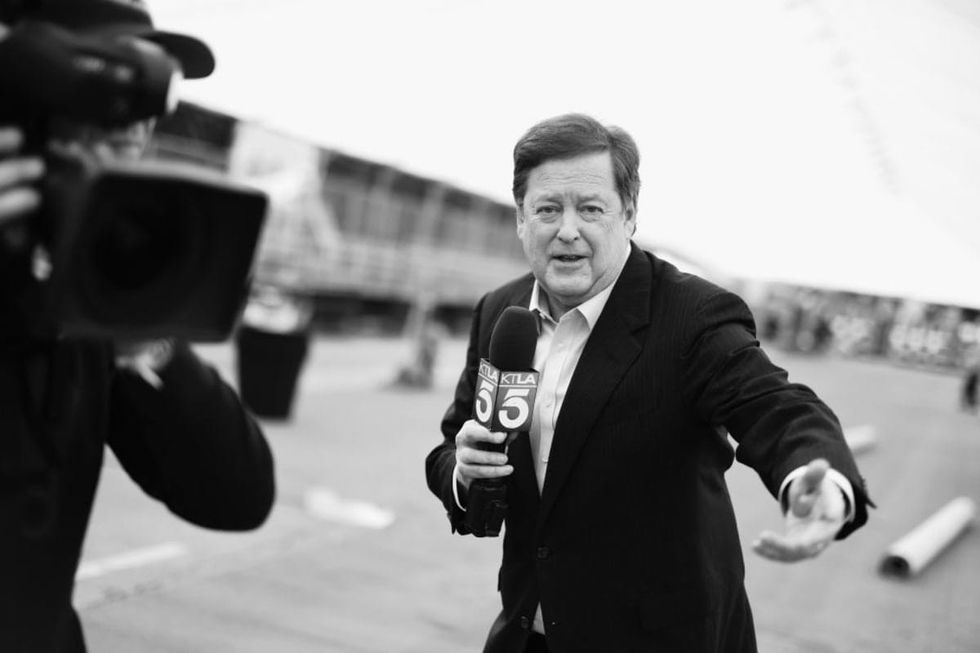
With a slight pause, Colby began, "Hi, Dad. I wrote this under the desk in your cubicle where you used to catch me sleeping." He added, "Only you weren’t there when waking up this time. Dad, I can’t believe you’re gone. You're never going to pick me up from school again. We’ll never get to go biking. We will never argue about food. You won’t be at my wedding."
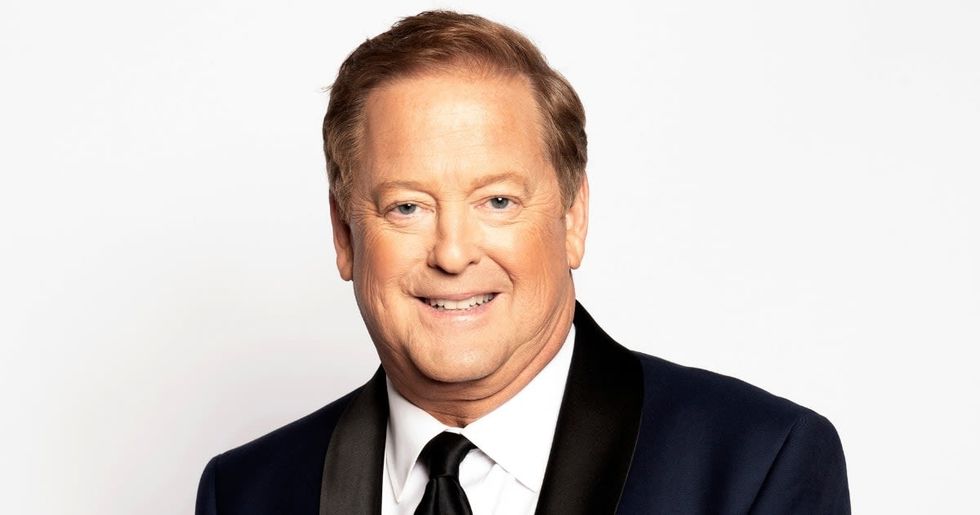
Colby held back his tears and continued, "You were the kindest soul, you were the light in every room. I can’t imagine my life without you. You were part of my everything. On the day you died, I hope you heard me say that...You took me to every Scout Boy meeting, to every therapy session." Sharing an anecdote, the teen said, “I remember on a Boy Scout trip, I was the only kid in our group who didn’t have a kayak and partner and you were there for me," adding how his dad always supported him.
He then shared a screenshot of his conversation with his father after he received negative feedback for a performance during his school play. The chats showed Rubin telling Colby who wanted to back out, “Ignore the noise. You will get bad reviews for every show." The text eventually ended with an encouraging tone with the father saying, "You have excellent genes. You have every gift. Respect your talent."
Colby, in tears, read the final part of his eulogy: "You always knew what to say and... you encouraged me, and you loved me every day and built me up. I am completely who I am because of you...I had more of a father in 16 years than people have had their entire lives." Grateful, he added, “Dad, I love you. I am so lost without you. I’ll miss you every day. I hope you know how loved you are.”
After reading the letter, Colby took out a cupcake from his pocket and paid tribute to his late father by eating it. "For you, Dad," he said. Sam Rubin was famous for his cupcake-eating method and had never shied away from showing his audience the "best way" to eat a cupcake. Rubin's untimely death left an impact on renowned celebrities, as well. Guillermo Del Toro, Viola Davis, Tom Hanks and Ryan Reynolds among others offered their condolences on social media.



















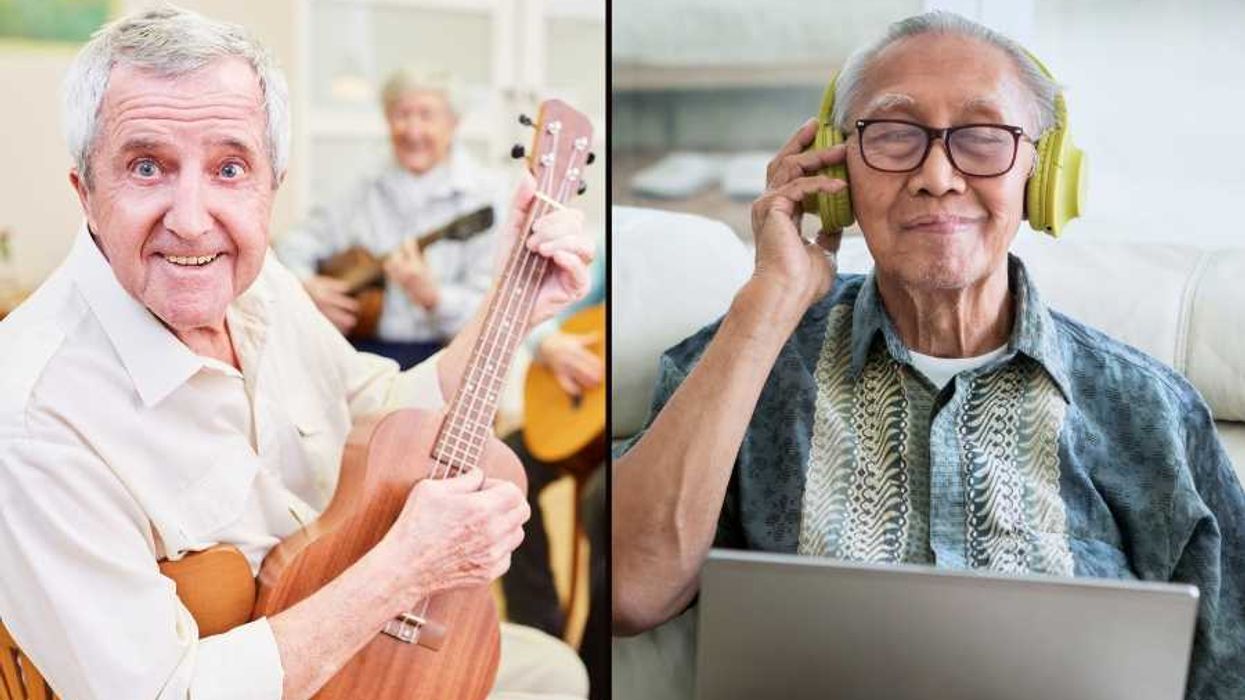


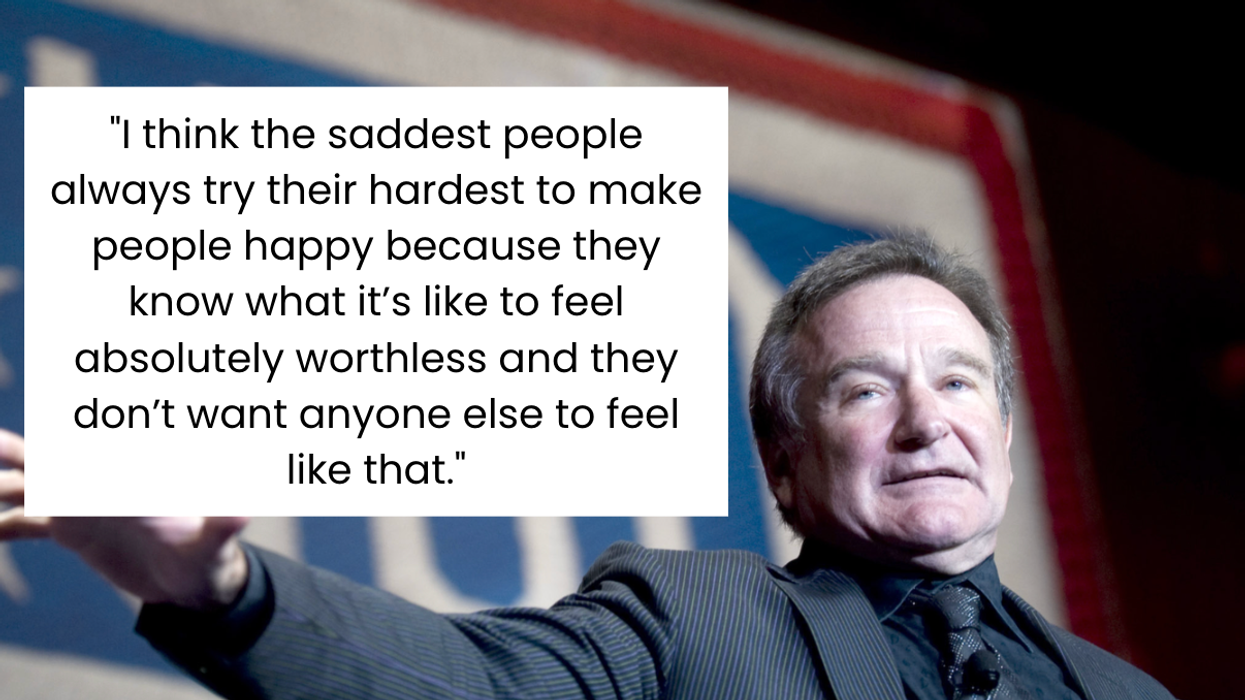
 Robin Williams performs for military men and women as part of a United Service Organization (USO) show on board Camp Phoenix in December 2007
Robin Williams performs for military men and women as part of a United Service Organization (USO) show on board Camp Phoenix in December 2007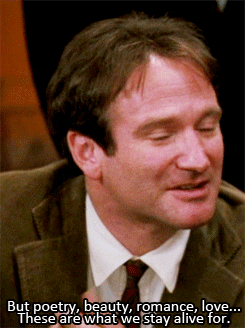 Gif of Robin Williams via
Gif of Robin Williams via 
 A woman conducts a online color testCanva
A woman conducts a online color testCanva A selection of color swatchesCanva
A selection of color swatchesCanva A young boy takes a color examCanva
A young boy takes a color examCanva
Will your current friends still be with you after seven years?
Professor shares how many years a friendship must last before it'll become lifelong
Think of your best friend. How long have you known them? Growing up, children make friends and say they’ll be best friends forever. That’s where “BFF” came from, for crying out loud. But is the concept of the lifelong friend real? If so, how many years of friendship will have to bloom before a friendship goes the distance? Well, a Dutch study may have the answer to that last question.
Sociologist Gerald Mollenhorst and his team in the Netherlands did extensive research on friendships and made some interesting findings in his surveys and studies. Mollenhorst found that over half of your friendships will “shed” within seven years. However, the relationships that go past the seven-year mark tend to last. This led to the prevailing theory that most friendships lasting more than seven years would endure throughout a person’s lifetime.
In Mollenhorst’s findings, lifelong friendships seem to come down to one thing: reciprocal effort. The primary reason so many friendships form and fade within seven-year cycles has much to do with a person’s ages and life stages. A lot of people lose touch with elementary and high school friends because so many leave home to attend college. Work friends change when someone gets promoted or finds a better job in a different state. Some friends get married and have children, reducing one-on-one time together, and thus a friendship fades. It’s easy to lose friends, but naturally harder to keep them when you’re no longer in proximity.
Some people on Reddit even wonder if lifelong friendships are actually real or just a romanticized thought nowadays. However, older commenters showed that lifelong friendship is still possible:
“I met my friend on the first day of kindergarten. Maybe not the very first day, but within the first week. We were texting each other stupid memes just yesterday. This year we’ll both celebrate our 58th birthdays.”
“My oldest friend and I met when she was just 5 and I was 9. Next-door neighbors. We're now both over 60 and still talk weekly and visit at least twice a year.”
“I’m 55. I’ve just spent a weekend with friends I met 24 and 32 years ago respectively. I’m also still in touch with my penpal in the States. I was 15 when we started writing to each other.”
“My friends (3 of them) go back to my college days in my 20’s that I still talk to a minimum of once a week. I'm in my early 60s now.”
“We ebb and flow. Sometimes many years will pass as we go through different things and phases. Nobody gets buttsore if we aren’t in touch all the time. In our 50s we don’t try and argue or be petty like we did before. But I love them. I don’t need a weekly lunch to know that. I could make a call right now if I needed something. Same with them.”
Maintaining a friendship for life is never guaranteed, but there are ways, psychotherapists say, that can make a friendship last. It’s not easy, but for a friendship to last, both participants need to make room for patience and place greater weight on their similarities than on the differences that may develop over time. Along with that, it’s helpful to be tolerant of large distances and gaps of time between visits, too. It’s not easy, and it requires both people involved to be equally invested to keep the friendship alive and from becoming stagnant.
As tough as it sounds, it is still possible. You may be a fortunate person who can name several friends you’ve kept for over seven years or over seventy years. But if you’re not, every new friendship you make has the same chance and potential of being lifelong.